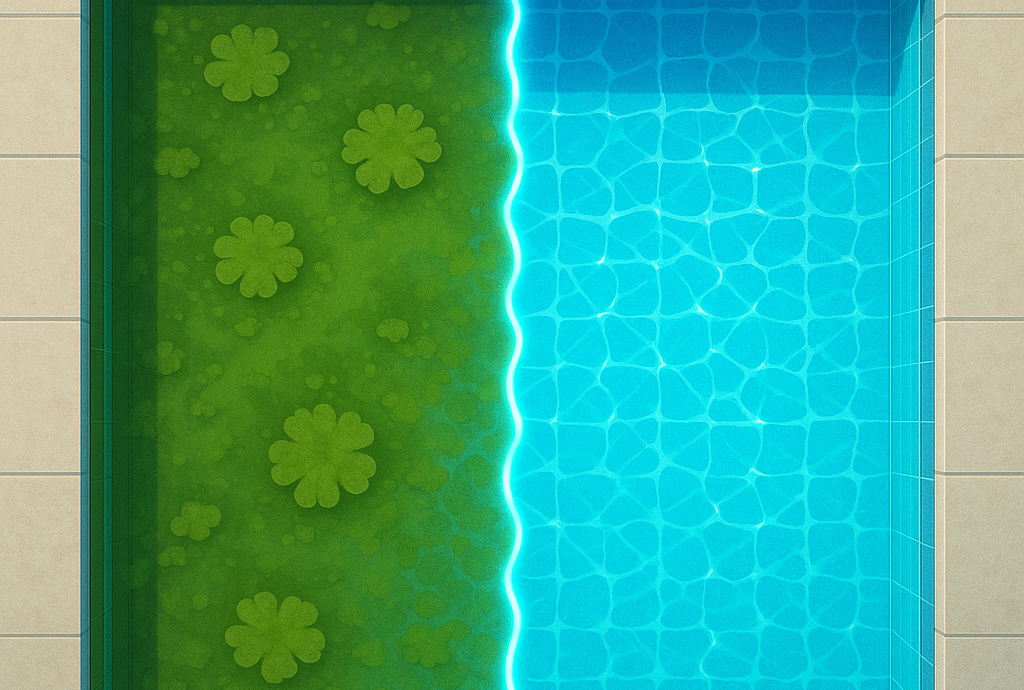Florida homeowners often dream of having a refreshing backyard pool to escape the heat. But before diving in, one of the most important decisions is choosing saltwater vs. chlorine. Both options have their pros and cons, especially when it comes to Florida’s hot climate, frequent pool use, and long swimming season.
In this guide, we’ll compare saltwater and chlorine pools in terms of cost, maintenance, comfort, and durability—so you can decide which one is the right fit for your Florida home.
1. Initial Cost
- Saltwater Pools: Installing a saltwater pool requires a saltwater generator, which adds to upfront costs. On average, Florida homeowners may pay $1,500–$2,500 more compared to a chlorine system.
- Chlorine Pools: Chlorine pools are generally cheaper to install because they don’t require extra equipment beyond the pump and filter.
Winner: Chlorine pools for lower installation costs.
2. Maintenance & Chemicals
- Saltwater Pools: These pools produce chlorine naturally from salt through electrolysis. This means fewer trips to the store for pool chemicals. Maintenance is usually easier, though the generator requires occasional servicing.
- Chlorine Pools:Traditional chlorine pools need regular chemical treatments, especially in Florida’s hot climate where chlorine burns off quickly. Pool owners may need to test water more often during summer.
Winner: Saltwater pools for simpler, less frequent chemical management.
Read More: How Often Should You Clean Your Pool Filter?
3. Comfort & Swimming Experience
- Saltwater Pools: Gentle on skin, hair, and eyes, saltwater pools provide a softer swimming experience. Florida families with kids or sensitive skin often prefer this option.
- Chlorine Pools: Can sometimes cause dry skin, red eyes, or strong chlorine odor—especially during heavy pool use.
Winner: Saltwater pools for comfort and swimmer-friendly water.
4. Durability & Equipment Life
- Saltwater Pools: Salt can be corrosive to pool fixtures, heaters, and even some stone decking if not maintained properly. Florida’s humidity can speed up wear and tear.
- Chlorine Pools: Less corrosive overall but may require frequent liner or surface treatments to combat chlorine-related fading or staining.
Winner: Tie—each has unique risks depending on care.
5.Long-Term Costs
- Saltwater Pools: While maintenance costs are lower, replacing a saltwater generator (every 5–7 years) can be pricey.
- Chlorine Pools:Chemicals add up over time, making them more expensive in the long run.
Winner: Saltwater pools for long-term savings.
Which Pool Is Best for Florida Homes?
If you want lower upfront costs and don’t mind frequent chemical balancing, a chlorine pool may work best. But if you prefer a softer, low-maintenance swimming experience and are willing to invest a little more upfront, a saltwater pool is an excellent choice for Florida’s year-round swimming weather.
If you want to maintain your pool with professional expertise, then visit: https://floridadetail.com/



Recent Comments